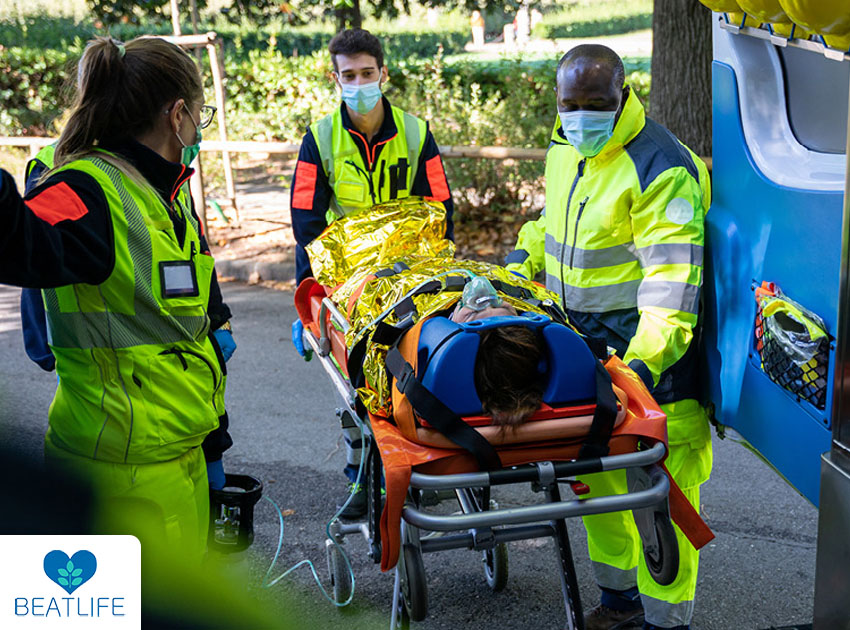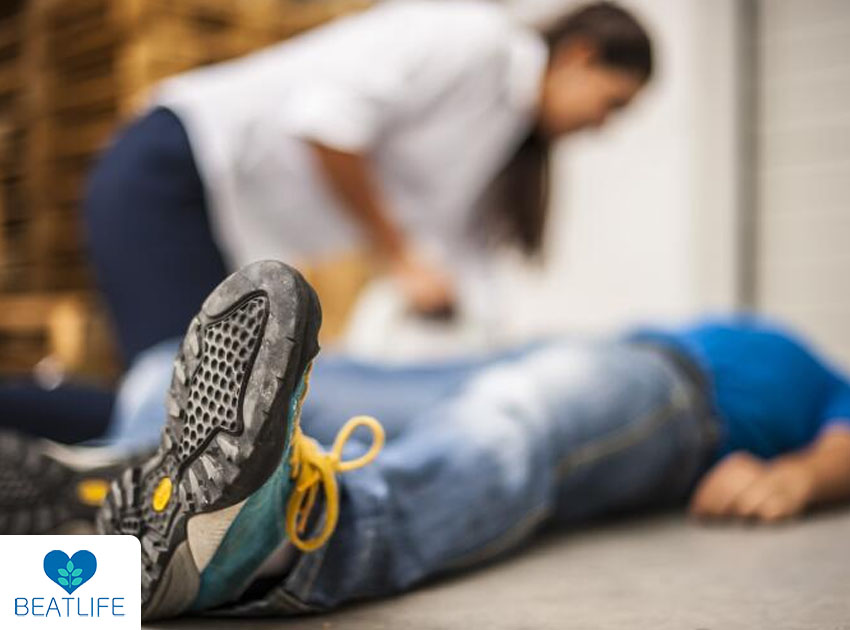After experiencing a heart attack, its natural to feel overwhelmed and uncertain about what to do next. Although the path to recovery may be challenging, it’s crucial to keep in mind that you can improve your health and wellbeing by taking proactive and practical measures. This post can help you in your path ahead, whether you are a caregiver, a heart attack survivor, or just looking for information about what should we do after a heart attack.
In this blog post, we’ll explore the crucial steps to follow after experiencing a heart attack, including modifying one’s lifestyle, receiving continued medical attention, and administering first aid. We’ll also provide some information on BEATLIFE CPRMETER. This device can be utilized during emergencies to ensure a successful CPR performance while administering first aid.
Contents
- 1 How Quickly Should a Heart Attack Be Treated?
- 2 What Is the First Aid Treatment for Heart Attack?
- 3 When Should You Seek Medical Attention for a Heart Attack?
- 4 How Many Days Are Critical After Heart Attack?
- 5 How Do You Take Care of Yourself After a Heart Attack?
- 6 Can You Live a Normal Life After Heart Attack?
How Quickly Should a Heart Attack Be Treated?
A heart attack should be treated as quickly as possible in order to reduce cardiac damage and increase survival rates. Timely treatment is crucial to ensure that blood flow to the heart muscle is restored and further health complications are avoided.
It is advised that upon experiencing any of the symptoms of a heart attack—such as discomfort in the upper body, shortness of breath, and chest pain— immediately contact emergency services and seek medical attention.
Delays in seeking treatment can lead to more severe damage to the heart muscle and it may increase the risks of further life-threatening health complications. In other words, what should we do after a heart attack is to seek medical attention as soon as the signs of a heart attack are observed.

What Is the First Aid Treatment for Heart Attack?
The first aid treatment for a heart attack firstly involves dialing emergency services. As you wait for the first responders to arrive and provide medical assistance, make sure the patient is seated or lying down in a comfortable position.
If the person is conscious and not allergic, assist them in taking an aspirin in order to potentially reduce blood clotting. It’s critical to constantly monitor the patient’s condition and be prepared to perform cardiopulmonary resuscitation or CPR if they stop breathing normally or become unconscious and unresponsive.
If available use BEATLIFE CPRMETER while performing CPR. This device provides real-time feedback on the depth and rate of chest compressions. This information can help rescuers improve the quality of CPR, deliver a successful CPR, and increase the chances of survival for the patient.
While considering what should we do after a heart attack, remember it’s also critical to keep the person relaxed and comforted, since stress can exacerbate the situation. Remember not to give the patient anything to eat or drink, and not to give them any medication unless a doctor has prescribed it. These steps can help provide first aid and support until professional medical help arrives.
When Should You Seek Medical Attention for a Heart Attack?
It’s critical to immediately get medical help upon experiencing symptoms of a heart attack. While the symptoms of a heart attack can vary, some common signs include pain or discomfort in the chest, nausea, lightheadedness, shortness of breath, and pain or discomfort in other upper body parts including the arms, back, neck, or jaw.
It’s critical to pay close attention to these symptoms and not ignoring them. The outcome of a heart attack can be significantly impacted by prompt medical care. When suspecting a heart attack, it’s always best to be cautious and get medical attention as soon as you can.
How Many Days Are Critical After Heart Attack?
The initial days and weeks after a heart attack are usually the most critical period. Complications include arrhythmias, cardiac failure, and further heart injury are more likely to occur during this period. To reduce these risks, what should we do after a heart attack involves prompt medical intervention and regular monitoring, which are essential.

How Do You Take Care of Yourself After a Heart Attack?
After a heart attack, it is essential to follow the advice of the medical professionals and giving self-care a high priority. It is imperative to undertake some lifestyle modifications after a heart attack in order to reduce the risks of future cardiac incidents. Some of these recommendations address what should we do after a heart attack and they typically involve:
1. Following a heart-healthy diet: This involves consuming food low in cholesterol, salt, and saturated fats. Eating plenty of fruits, vegetables, whole grains, lean proteins, and healthy fats.
2. Engaging in regular physical activity: Following an exercise routine with at least 150 minutes of moderate-intensity exercise per week.
3. Establish healthy habits: Quitting smoking, avoiding secondhand smoke, and limiting alcohol consumption are some crucial steps to improve heart health.
4. Undergo regular check-ups: It is essential to adhere to prescribed medications, attend follow-up appointments, and participate in cardiac rehabilitation programs for tracking improvement and implementing any necessary alterations to lifestyle or prescribed medications.
Can You Live a Normal Life After Heart Attack?
Yes, a lot of people who experienced a heart attack go on to live normal lives. It’s critical to follow the recommended treatment plan after a heart attack, which may involve medication, lifestyle modifications, and rehabilitation. Patients can restore their strength, improve their heart health, and reduce the risks of experiencing further cardiac events. Remember that each person’s experience and healing journey may vary.

